Posted on 3/31/2024

Ever wondered about the magic behind those refreshing gusts of cool air that greet you on sweltering summer days or balmy evenings? Your car's air conditioning system, or A/C, is more than just a luxury; it's a marvel of engineering designed to keep you comfortable and refreshed during your journeys. But what exactly are the components that make up this essential feature of modern vehicles? How do they work together to create that blissful oasis of coolness inside your car? Components of A Vehicle's Air Conditioning System Compressor At the heart of your car's A/C system lies the compressor, a vital component responsible for pressurizing and circulating the refrigerant. Operating in a manner akin to the human heart, the compressor pumps refrigerant through the system, transforming it from a low-pressure gas into a high-pressure liquid. Condenser As the refrigerant flows from the compressor, it enters the condenser, where it undergoes a crucia ... read more
Posted on 2/28/2024
.jpeg)
Have you ever felt your car pulling to one side or experienced vibrations through the steering wheel? If so, you might be wondering whether your wheels need alignment or balancing. Understanding the disparity between these two automotive maintenance procedures is crucial for ensuring optimal performance and safety on the road. What Is Wheel Alignment When we talk about wheel alignment, we're referring to the adjustment of the angles of your vehicle's wheels to manufacturer specifications. This adjustment ensures that the wheels are perpendicular to the ground and parallel to each other. Proper alignment addresses three key angles: camber, toe, and caster. Camber refers to the vertical tilt of the wheels when viewed from the front or rear of the ... read more
Posted on 1/30/2024
.jpeg)
The longstanding debate between the reliability of diesel and gasoline engines is as prevalent as ever. For decades, diesel engines have been praised for their durability and longevity, but does this mean they are inherently more reliable than their gasoline counterparts? The Difference Between Gasoline and Diesel Engines The fundamental difference between diesel and gasoline engines lies in their ignition processes. Gasoline engines use spark plugs for ignition, while diesel engines rely on compressed air heated to high temperatures, which ignites the diesel fuel. This difference in ignition methodology leads to variations in engine design, efficiency, and performance characteristics. Diesel engines typically offer higher torque, making them suitable for heavy-duty vehicles, while gasoline engines provide higher horsepower, favoring quick acceleration. Are Diesel Engines More Reliable Diesel engines have a reputation for reliability and lon ... read more
Posted on 12/21/2023
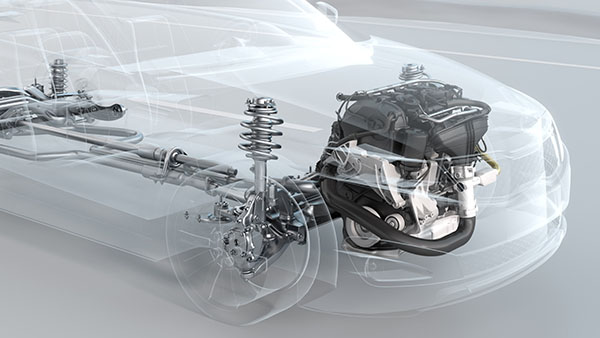
As you slide into the driver's seat, ready to embark on another journey, have you ever taken a moment to appreciate the low and pleasant tone of your car. This is all due to the exhaust system. This network of pipes and components plays a pivotal role beyond just muffling the engine noise. It is responsible for all the exhaust gasses, ensuring your vehicle operates efficiently and responsibly. The Purpose Beyond the Noise While it's easy to associate the exhaust system with the characteristic growl of a high-performance engine or the subtle hum of a well-tuned sedan, its primary function extends far beyond sound aesthetics. At its core, the exhaust system is a mechanism designed to guide, filter, and cleanse the gasses produced during the combustion process. The Components at Play To understand the whole system, let's meet ... read more
Posted on 11/27/2023
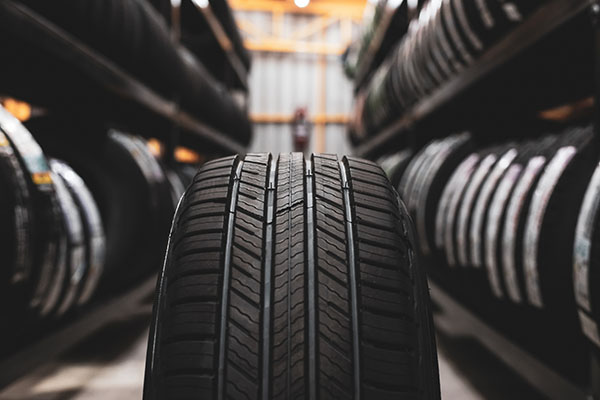
Have you noticed your vehicle pulling to one side or maybe a few unfamiliar sounds while turning? This subtle tug-of-war isn't just a nuisance - it's a cry for help from your vehicle's wheels, signaling that it's time for a wheel alignment. Let's take a closer look at what it is and a few signs it's time for an alignment! Understanding Wheel Alignment Wheel alignment is the unsung hero of your vehicle's performance and longevity. It refers to the adjustment of the angles of your wheels, ensuring they are set to the car manufacturer's specifications. This meticulous process involves tweaking the wheels so that they are perpendicular to the ground and parallel to each other. Why does this matter? Because when your wheels are properly aligned, you enjoy optimized handling, improved fuel efficiency, and prolonged tire life. Signs You Need an Alignment Your vehicle has its own language; it communicates through signs and s ... read more
Posted on 10/30/2023
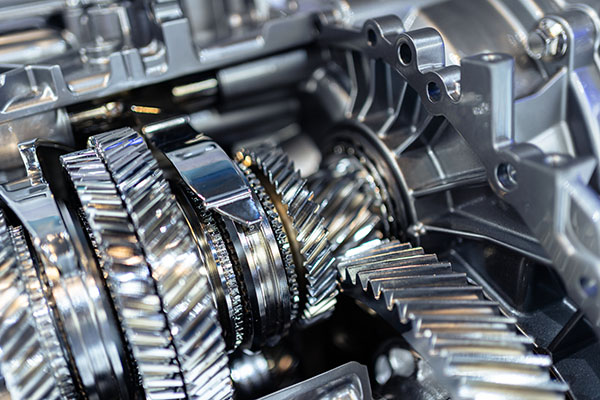
The intricate workings of a vehicle's transmission can often seem like a mystery to many drivers, leading to a plethora of questions and uncertainties. Understanding the fundamentals of a car's transmission is key to ensuring its longevity and optimal performance. From the significance of transmission fluid to the signs of potential issues, delving into the world of transmission can empower drivers to make informed decisions and take proactive measures in maintaining their vehicles. What is the role of transmission fluid, and why is it crucial for the transmission's performance? Transmission fluid serves as a lubricant and coolant for the transmission system, ensuring smooth gear shifting and preventing overheating. Regularly checking and replacing transmission fluid according to the manufacturer's guidelines is crucial in maintaining the transmission's efficiency and preventing costly repairs down the line. How often should the transmiss ... read more
Posted on 9/30/2023
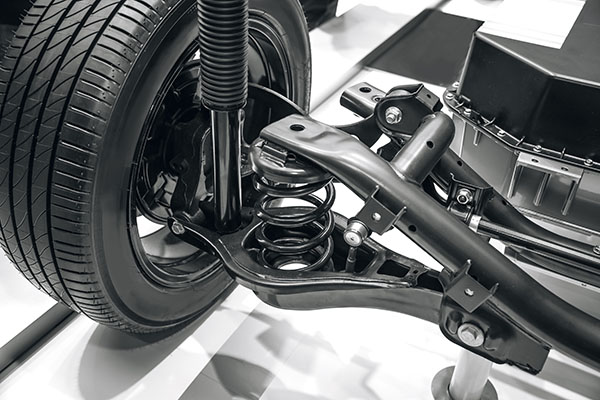
Imagine gliding down a winding road, the gentle hum of your tires on the pavement, and the feeling of effortless control as your car gracefully navigates each curve. Behind this harmonious experience is a marvel of engineering - your vehicle's suspension system. It's the hero lurking in the shadows that ensures your ride remains comfortable and your tires stay firmly planted on the road. Join us on a journey through the intricate web of shocks, struts, and everything else that makes your suspension system work as well as it does. The Key Components of a Suspension System and Their FunctionsSprings Springs are the backbone of your suspension system. They absorb shocks and bumps, maintaining tire contact with the road. Coil springs and leaf springs are common types used in vehicles. Shock Absorbers (Dampers) Shock absorbers, often simply called shocks, work in tandem with springs to control the rebound and oscillatio ... read more
Posted on 8/31/2023
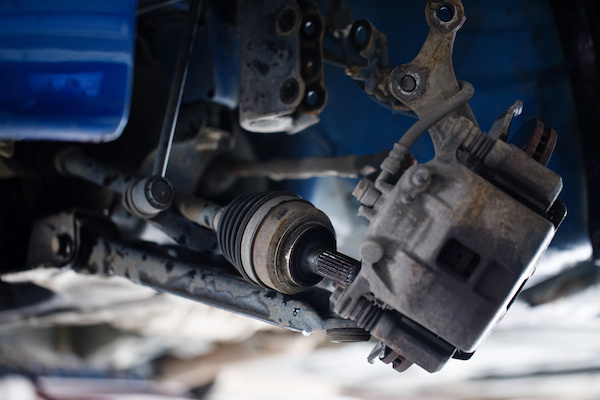
Although often overlooked, axles are crucial components that play a significant role in the proper functioning of your vehicle. Responsible for transferring power from the engine to the wheels, axles ensure a smooth and controlled ride. Understanding their importance and recognizing signs of potential issues can save you from costly repairs and ensure your safety on the road. The Role of Axles Axles serve as the link between your vehicle's wheels and its transmission. They bear the vehicle's weight, absorb road shocks, and deliver torque from the engine to the wheels, allowing your car to move forward. In essence, axles are the backbone that supports your vehicle's movement and stability. Signs You Need Axle Repairs Unusual Noises: A clicking or clunking noise when turning, accelerating, or braking could indicate worn or damaged axles. This could be a sign of failing CV (constant velocity) joints, which connect the axle to the wheels. Vibratio ... read more
Posted on 7/30/2023
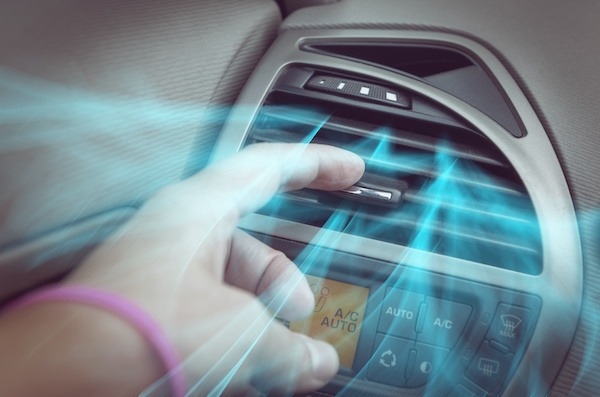
Ah, the sweet relief of a cool breeze on a hot summer day as you turn on your car's air conditioning. But what happens when that refreshing blast of cool air turns into a feeble puff or, worse, warm air? It's undoubtedly an annoying experience. However, fear not; Spectrum Car Care in Gilbert, AZ is here to shed light on the mysterious world of auto A/C problems and guide you through the process of diagnosing them. Lack of Cooling Power: If you're feeling underwhelmed by the cooling power of your A/C system, the culprit could be a refrigerant leak. Insufficient refrigerant levels can result in reduced cooling performance. Another possible cause is a malfunctioning compressor, which is responsible for compressing the refrigerant and circulating it through the system. In either case, it's essential to have a professional technician inspect and repair the issue. No Airflow or Weak Airflow: If your A/C system isn't producing any airflow or if the airflow is weak, seve ... read more
Posted on 6/30/2023

When summer comes around, it's time to enjoy the outdoors in your car. However, the scorching heat of summer can cause damage to your vehicle, affecting its overall performance. But not to worry. Below are five measures to protect your car from the heat. 5 Ways to Protect Your Car This Summer The summer's heat can take a toll on your car, affecting its performance. However, you can protect your car from the heat this season with the following measures. Park Smartly Ensure you leave your car under a shade to reduce the heat absorbed. If you cannot access covered parking areas, such as garages or carports, you may have to consider using a windshield sunshade. Protect the Interior Investing in a car cover or window shade can shield your car from direct sunlight. You can go to the extent of getting dashboard covers and seat covers to help keep the cabin cooler. Maintain Fluid Levels Another critical point is to ensure the car ... read more